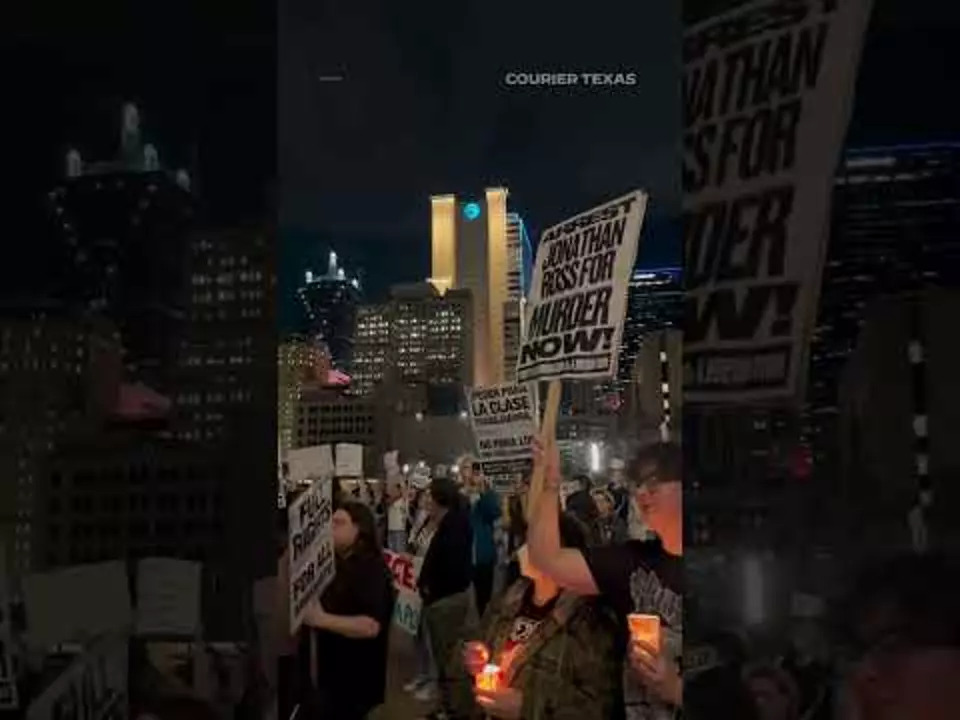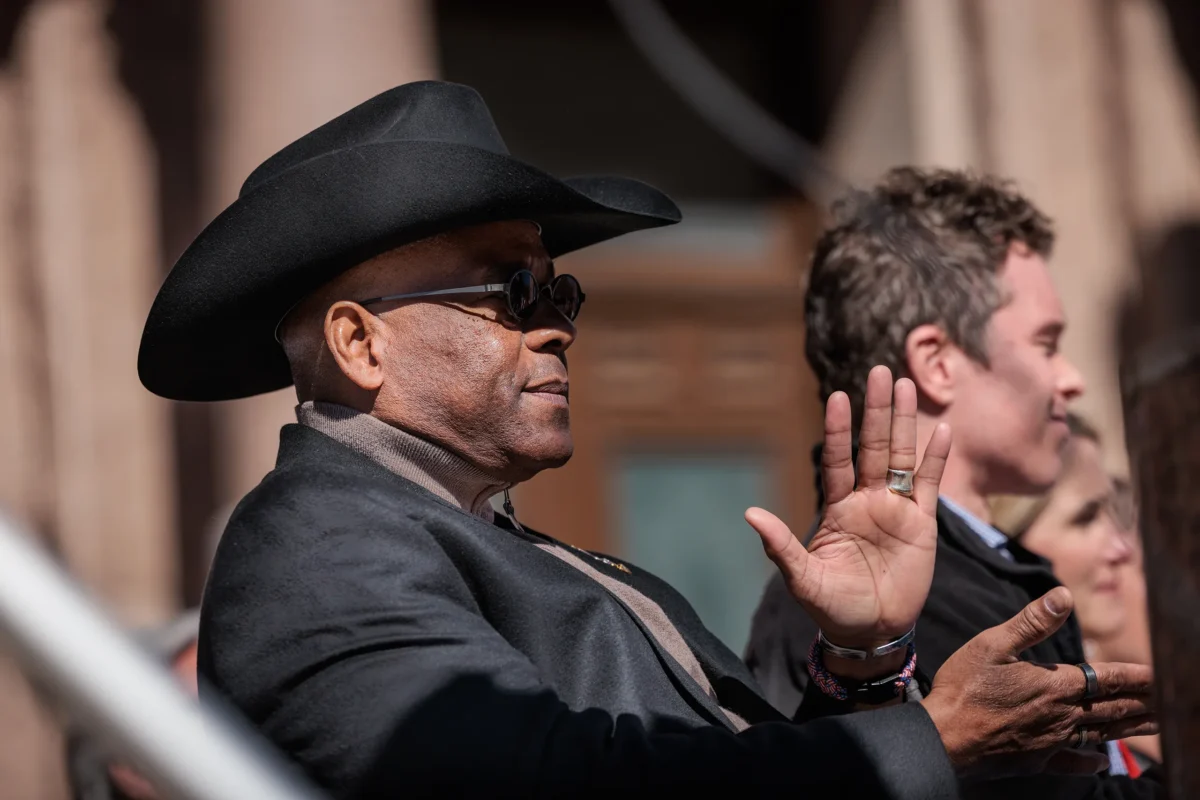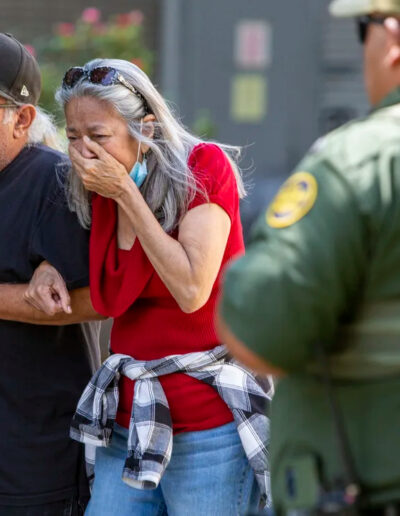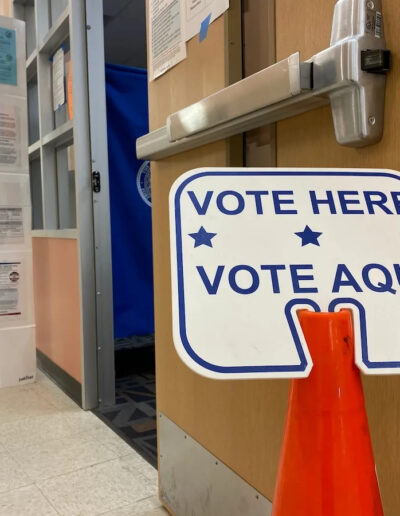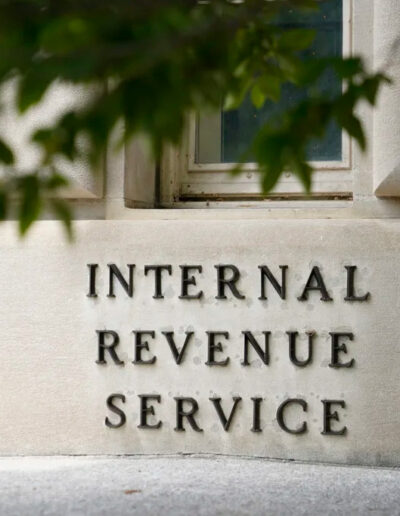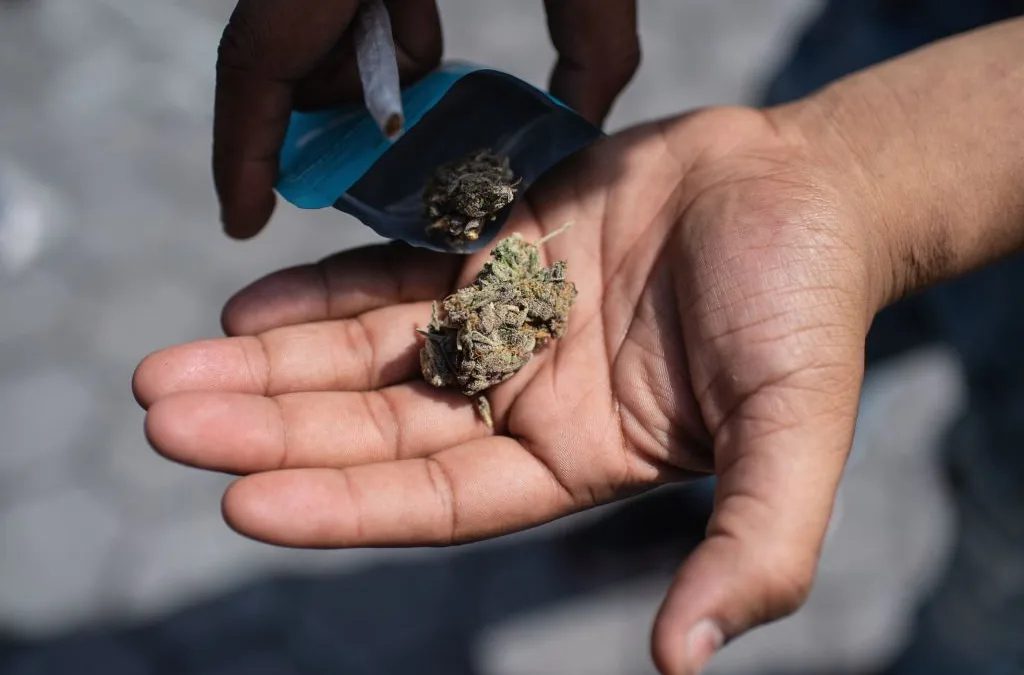
Updated June 26, 2024
Dallas voters could have the chance to decriminalize marijuana this November, after a coalition of community organizations collected 50,000 signatures from Dallas voters to put a measure on the ballot. Organizers only needed 20,000 signatures to qualify.
The proposed measure, the “Dallas Freedom Act,” seeks to amend the city charter to prohibit the arrest and ticketing of individuals for simple possession of marijuana.
The coalition behind the effort, which includes Dallas Action and Ground Game Texas held a rally outside the Frank Crowley Courthouse in Dallas on Monday.
“It would stop the arrest of people for simple possession, that’s Class A and Class B marijuana possession, four ounces or less. It would also limit the ability for police to target people for marijuana smells,” Dallas Action founder Changa Higgins said, as reported by WBAP.
The group says the aim of their effort is to reduce racial disparities in policing, pointing to a May 2023 report from Dallas Action, the ACLU of Texas, and a dozen other organizations that found that Black and brown Dallas residents make up a disproportionate share of arrests by Dallas police, including for minor marijuana possession offenses.
Dallas County Democratic Party Chair Kardal Coleman said the effort was about “justice.”
“When we talk about decriminalization, we know that communities of color, Black, brown, and poor communities are disproportionately affected by the criminalization of marijuana,” Coleman said in an interview.
He added that the goal is to reduce the harms suffered by those arrested on low-level marijuana misdemeanors, including the potential loss of a job or the impounding of a vehicle.
Those involved in the effort claim the effort will also save Dallas taxpayers potentially millions of dollars by eliminating the prosecution costs for misdemeanor marijuana charges.
The measure would also require the city to publicly report on its marijuana enforcement programs each quarter and prevent taxpayer dollars from being used on chemical testing to distinguish legal “hemp” from illegal “marijuana.” The two look and smell identical and testing is crucial in the prosecution of low-level marijuana possession cases.
Similar efforts passed in 2022 in Austin, Denton, Elgin, Killeen, and San Marcos, but Texas Attorney General Ken Paxton attempted to sue the five cities over the decriminalization policies—even though they were approved by between 69% and 85% of voters in each case. A Travis County judge has dismissed the lawsuit in June.
Paxton, who himself has a lengthy record of alleged crimes and corruption scandals, said in a statement that he would “not stand idly by as cities run by pro-crime extremists deliberately violate Texas law and promote the use of illicit drugs that harm our communities.”
In response, Julie Oliver, executive director of Ground Game Texas, issued a statement calling Paxton’s motives into question.
“Paxton’s slander of so-called ‘pro crime’ organizations that support marijuana reform policies is profoundly ironic coming from a person who is under criminal indictment for securities fraud, under federal investigation for other financial crimes, and has admitted to violating the civil rights of whistleblowers within his own office,” Oliver said in a press release. “This lawsuit is an obvious attempt to deflect from Paxton’s embarrassing legal jeopardy and diminishing political influence.”
Paxton claimed the decriminalization policies were illegally adopted and that the cities violated state laws and the state constitution by refusing to enforce state marijuana restrictions.
“We don’t allow cities the ability to create anarchy by picking and choosing the laws they enforce,” he said.
The cities are home-rule cities, however, meaning that under the Texas constitution, they are allowed to establish any law or ordinance unless it’s explicitly forbidden by federal or state law.
Paxton is arguing that is exactly the case, claiming that Texas Local Government Code bans home-rule cities from adopting “a policy under which the entity will not fully enforce laws relating to drugs.”
Oliver rejected this argument, calling Paxton’s lawsuits “an anti-democratic assault on the constitutional authority of Texas Home Rule cities to set local law enforcement priorities.”
“In each of the cities sued, a supermajority of voters adopted a policy to deprioritize marijuana enforcement in order to reduce racially-biased law enforcement outcomes and save scarce public resources for higher priority public safety needs,” Oliver added.
What Paxton’s lawsuits mean for the measure in Dallas—which is also a home-rule city—is not yet clear, but they suggest that he may not let local voters get the last word.




